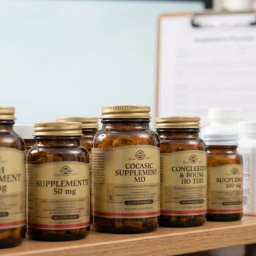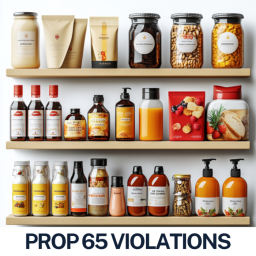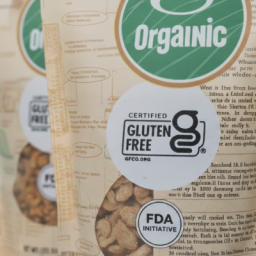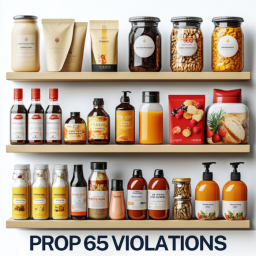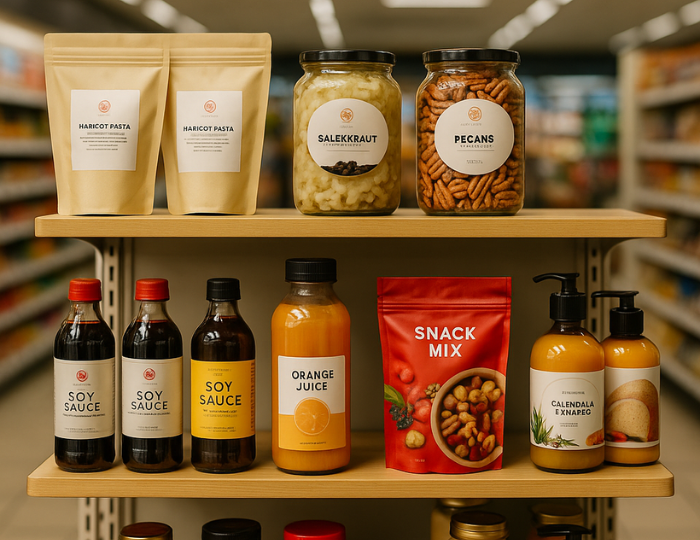
How FDA Regulations Interact with State Laws for Food, Beverage, Supplements, and Cosmetics
Navigating the regulatory landscape for food, beverage, dietary supplements, and cosmetics in the United States requires understanding the interplay between federal regulations administered by the Food and Drug Administration (FDA) and a wide array of state-level laws. The FDA establishes comprehensive federal standards that cover product labeling, ingredient safety, permissible claims, and good manufacturing practices (GMP). These regulations form the foundation for ensuring consumer safety and product integrity nationwide. However, these federal standards are not the final word. Instead, they operate as a baseline, allowing states to impose additional, and sometimes stricter, requirements in areas where federal law does not expressly preempt state action.
One of the most prominent examples of state regulations exceeding federal requirements is California’s Proposition 65. While the FDA governs food and supplement labeling on a national level, Proposition 65 requires businesses to provide warnings about exposures to certain chemicals that California has determined cause cancer or reproductive harm. A product could fully comply with all FDA labeling requirements and still be subject to a Prop 65 enforcement action if it contains even trace amounts of a listed chemical without a proper warning label. This is not a trivial concern, as the Prop 65 list includes hundreds of chemicals found in packaging materials, manufacturing equipment, and even naturally occurring substances in food.
Other states have followed California’s lead in crafting regulations that surpass FDA requirements. For example, Maine and New York have enacted laws banning the use of per- and polyfluoroalkyl substances (PFAS) in food packaging, even though the FDA has not yet implemented comprehensive PFAS restrictions at the federal level. Likewise, the handling of hemp-derived products such as CBD further demonstrates the regulatory divergence. The FDA prohibits adding CBD to food and supplements under federal law, yet states like Oregon and Colorado have created their own regulatory frameworks that allow these products under strict safety and labeling conditions. This divergence creates significant compliance challenges for businesses trying to operate across multiple jurisdictions.
Ultimately, the relationship between FDA rules and state laws is one of layered governance rather than complete federal dominance. In practice, businesses must treat compliance as a two-tiered system. Federal compliance ensures that a product can be sold across state lines without violating national laws, but state compliance determines whether the product can actually be sold within a given state without triggering fines, lawsuits, or recalls. Brands that overlook this reality risk costly legal consequences, particularly as consumer protection, environmental standards, and health-based regulations continue to evolve at the state level independently of federal oversight.
What Does the FDA Regulate?
The U.S. Food and Drug Administration (FDA) regulates:
- Labeling and packaging requirements
- Permitted and prohibited ingredients
- Health and nutrition claims
- Good Manufacturing Practices (GMP)
- Product recalls and enforcement actions
For example, the FDA oversees nutritional labeling, allergen disclosures, dietary supplement claims under the Dietary Supplement Health and Education Act (DSHEA), and cosmetic labeling standards under the Federal Food, Drug, and Cosmetic Act (FD&C Act).
Where State Regulations Go Beyond the FDA
Are FDA rules enough for nationwide compliance?
Not always. Many states impose additional requirements that are stricter than, or entirely separate from, federal law.
Common State-Level Add-Ons Include:
- California’s Proposition 65: Requires warnings for chemicals known to cause cancer or reproductive harm, regardless of FDA compliance. Even trace amounts can trigger a warning obligation.
- New York’s Sodium Labeling Rules: Chain restaurants must disclose menu items with high sodium.
- Maine and Vermont Packaging Laws: Prohibit PFAS and other chemicals in food packaging ahead of federal bans.
- State Hemp/CBD Laws: While the FDA prohibits CBD in foods/supplements federally, states like Colorado and Oregon allow it with strict labeling and testing rules.
- State-Specific Organic Certifications: Some states have additional processes beyond USDA organic certification.
Key Differences Between FDA vs. State Compliance
| Topic | FDA Rule | State Example |
|---|---|---|
| Labeling | Uniform Nutrition Labeling | Prop 65 requires chemical warnings not on FDA labels. |
| Ingredients | FDA-approved GRAS list | Bans on PFAS in packaging in Maine, NY, CA. |
| Claims | Regulates structure/function, health claims | Some states ban “natural” claims without criteria. |
| CBD/Hemp | CBD prohibited in food/supplements federally | Permitted in some states with testing & disclosures. |
| Packaging | General material safety | State bans on plastic, PFAS, or excessive packaging. |
Do States Override the FDA?
Not exactly.
The FDA establishes minimum federal standards. States can regulate more strictly in areas not preempted by federal law. If there’s a conflict, courts determine whether the federal law preempts the state law.
Example:
- Prop 65 warnings are not preempted by FDA labeling laws—California courts uphold them.
- On the other hand, the FDA’s nutrition labeling rules do preempt conflicting state nutrition label requirements.
The Hidden Risk of State-Level Enforcement
For companies operating in FDA-regulated industries, the hidden risk of state-level enforcement represents one of the most significant legal and financial threats to nationwide operations. Many businesses assume that if they comply with federal FDA regulations, they are shielded from further scrutiny. This is a dangerous misconception. States possess independent enforcement authority and, in some cases, have created mechanisms that are far more aggressive than anything seen at the federal level. In fact, several states deploy private attorneys, consumer groups, and even bounty hunters as enforcement tools against companies that fail to meet state-specific laws.
California’s Proposition 65 illustrates how state-level enforcement can operate in a uniquely aggressive manner. While the FDA does not require warnings for trace chemicals in food packaging or consumer products, Prop 65 does. Enforcement is often driven by private individuals and law firms who are incentivized by California law to pursue noncompliant businesses. These private enforcers receive a portion of any financial penalties assessed, which creates a highly litigious environment. Companies can face statutory penalties of $2,500 per day, per violation, plus attorney fees, even when the presence of the chemical poses no significant risk under federal standards.
Beyond California, other states are increasing enforcement efforts using their own consumer protection laws and environmental regulations. New York’s Department of Environmental Conservation, for instance, actively investigates and penalizes brands for packaging that contains banned substances like PFAS, while its Department of Agriculture pursues violations related to misleading marketing claims or improper labeling. Similarly, states such as Massachusetts, Washington, and Vermont have demonstrated a willingness to enforce their own standards vigorously, often resulting in public penalties, mandatory corrective measures, and long-term damage to a company’s reputation.
These enforcement risks are especially pronounced for companies engaged in e-commerce. Selling products online does not limit a company’s exposure to the laws of its home state; rather, it subjects the company to the consumer protection and regulatory laws of every state in which a product is sold. A dietary supplement sold from Nevada to a customer in Vermont must comply not only with FDA rules but also with Vermont’s specific consumer protection statutes, environmental regulations, and packaging restrictions. This creates an operational and legal minefield for any brand seeking national reach, as a single oversight could trigger enforcement actions from multiple jurisdictions simultaneously. Businesses that fail to proactively account for state-level enforcement risk not only financial penalties but also supply chain disruptions, product removals, and severe reputational harm.
Who Needs to Worry About This?
- Food brands expanding beyond one state
- Beverage companies selling online nationwide
- Dietary supplement manufacturers
- Cosmetics and personal care brands with e-commerce reach
- International brands entering the U.S. market
If your label or formulation meets FDA standards but fails to comply with a state law like California’s Prop 65, you could face lawsuits, recalls, or fines—even without any FDA violation.
Compliance Checklist for Brands
Follow this checklist to reduce risk:
✔️ Confirm your product meets all FDA requirements.
✔️ Run a Prop 65 chemical analysis—even if FDA-compliant.
✔️ Check state packaging laws (PFAS, plastics, recycling mandates).
✔️ Verify whether CBD/hemp products are allowed in your sales states.
✔️ Review marketing claims—terms like “natural” may be restricted by states.
✔️ Consult legal counsel on labeling consistency across jurisdictions.
✔️ Maintain updated documentation for recall readiness in any state.
FAQ: Dual FDA and State Compliance
Do I need a separate label for California?
Possibly. If your product contains Prop 65-listed chemicals without a warning, you must add one for California sales.
Can I sell CBD products nationwide?
No. While some states permit CBD in food or supplements, the FDA still prohibits it federally. You must navigate both systems carefully.
What happens if I ignore state laws but comply with FDA?
You risk fines, lawsuits (including private bounty-hunter lawsuits under Prop 65), and potential product bans in specific states.
How Juris Law Group Can Help
At Juris Law Group, we guide food, beverage, supplement, and cosmetics companies through this complex web of federal and state compliance. From FDA regulatory strategy to state-specific risk assessments like Prop 65, we help brands stay compliant, minimize risk, and expand confidently. Contact us for a consultation. Our attorneys specialize in helping brands grow while staying compliant with FDA rules and state regulations.
